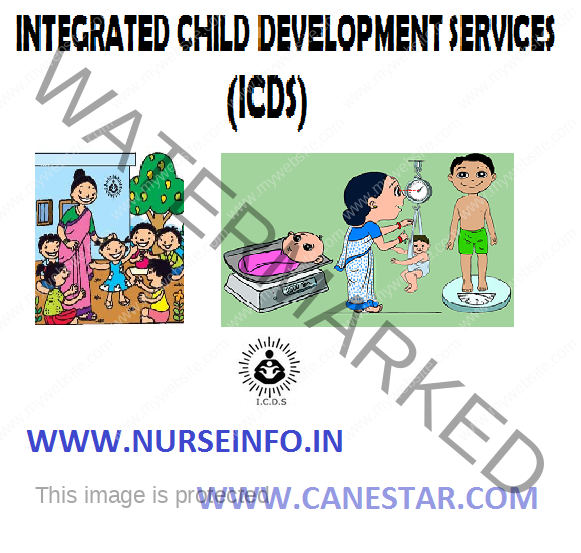INTEGRATED CHILD DEVELOPMENT SERVICES (CHILD HEALTH NURSING) – Introduction, ICDS Package Services, Impact of ICDS program (CHILD HEALTH NURSING)
INTRODUCTION
- Integrated child development services (ICDS) was initiated by Government of India, in the Ministry of Social and Women’s Welfare in 1975
- The rural and urban project has a population of 100,000 and a tribal project about 35,000
- Anganwadi actively cooperating in implementing this scheme
- ICDS scheme, does not include school-going children
- Currently, 5320 Child Development Schemes are running
ICDS PACKAGE SERVICES
Objectives
- To improve the physical, mental and social development of preschool children
- To improve the capacity of mother to look after the health and nutritional status of their children
- To reduce the maternal, the infant and the preschool child morbidity and mortality
Administration Setup
- State level: ICDS under the charges of ICDS program officer, who reports to the director, women and child welfare
- District level: district program officer under the district women and child welfare officer
- Rural block: child development projects officer manager about 100 village with a population of 1 lakh
- Village level: anganwadi worker and male helper manager 1000 population
- Tribal areas: anganwadi work manager every 100 population
ICDS Function
- Supplementary nutrition: it is given to children below 6 years and nursing and expected mother from low-income groups. The aim to supplement nutritional intake in about 200 cal and 8-10 grams of protein for children between 1 year, about 300 cal and 15 grams of protein for children between 1-6 years about 500 cal and 25 grams of protein for pregnant women and nursing mothers
- Immunizations: the anganwadi worker with the health worker female serving her area to give immunizations, and is recorded on the immunization and the road to health cards
- Non-formal education: the children between 3 and 6 years are imparted pre-elementary education without formal hours of teaching. The teaching mixed up with play. The importance of non-formal education lies in the fact that it prepares the preschool children for schooling
- Treatment and referral: with the help of the village health guide the anganwadi worker gets the needy children treated for minor condition like diarrhea, fever and acute respiratory tract infections, etc
- Growth monitoring: the anganwadi worker checks the weight of the preschoolers every month and records it in the road to health card
IMPACT OF ICDS PROGRAM
- Improvements in nutritional status of children
- Improved immunization coverage
- Decrease in infant mortality rate
- Decrease in prevalence of malnutrition among preschool children
- Improvement in school enrolment and reduction in school dropout rate


